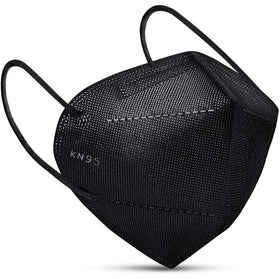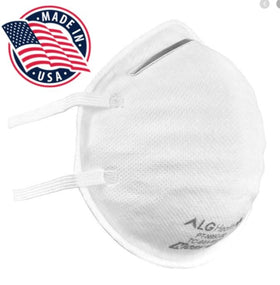Is it possible to reuse my KN95 or N95 face masks?

If you are like I originally was, I figured I could just place it on my rear-view mirror in the car and throw it on out in public and I was protected.
The issue here lies in the fact that the virus protection ability of a KN95 or N95 mask can diminish after just a few uses. Not to mention, if you did encounter the virus particles in any of your travels, then you are running the risk of transferring those particles to your hands when you are taking off and putting back on the KN95 or N95 mask so always remember to pay very close attention to your hands and wash them whenever taking masks on or off.
To further answer the question though of reuse, I wanted to dive into some research and below is what research has shown us thus far regarding this.
Two Re-Use Methods Tested (That are possible for average people)
Two methods for trying to decontaminate KN95 or N95 masks, which are designed for one-time use:
UV radiation (260 – 285 nm) – This is like leaving it in direct sunlight.
158° F dry heat – This is like a hot sauna.
WARNING: Do not ever use a microwave as the nose pieces have metal strip in them so NEVER do this.
For each method, researchers studying this compared the rate at which SARS-CoV-2 is inactivated on KN95 or N95 filter fabric to that on stainless steel.
Both methods eliminated detectable SARS-CoV-2 virus from the fabric test samples. Dry heat and UV light each required approximately 60 minutes.
KN95 or N95 Masks decontaminated with UV light could be used up to three times and function properly. Masks decontaminated with dry heat could be used two times before function declined.
Results indicate that KN95 respirators can be decontaminated and reused in times of shortage for up to three times for UV up to two times for dry heat. However, utmost care should be given to ensure the proper functioning of the KN95 or N95 respirator after each decontamination using readily available qualitative fit testing tools and to ensure that treatments are carried out for sufficient time to achieve desired risk-reduction.
UV light has been used for years to decontaminate rooms.
After some information from these studies is peer reviewed, the Centers for Disease Control and Prevention (CDC) may update its recommendations is my understanding.
As far as I’m aware, the CDC has not actually approved ANY method for decontaminating masks, "but it has said that it does not object to using these sterilizers, disinfectants, devices, and air purifiers for effectively killing this virus."
I hope this information was helpful and clears up this question that a lot of people seem to ask.
We all want to save a few dollars but at the end of the day we only have one body, one life, and we might as well be smart about how we protect ourselves and those around us in this difficult period. I will leave you with some money math to think about in making your decision on how you will protect yourself.
Purchasing a cloth mask
You're trying to save money and/or look stylish but in doing so you are risking your health.
Cloth masks only really protect others somewhat from your droplets but don’t really have the fabric capabilities to filter virus particles like KN95 or N95 masks that you can literally fill up with water and nothing leaks, try that with a cloth mask.
You are also supposed to wash a cloth mask after each use so factoring in your time, electricity, water, detergent, is it really saving you money and we’re talking about health? This pandemic won't last forever so make a short term investment in the best options on the market when it comes to your health.
Purchasing KN95 or N95 mask
You might require 20 masks or so in a month depending how many days you leave the house. Is it worth spending $30-40 a month for the next year (about the same as most spend on many other things like a gym membership, this is your health so take max precautions and use the best tools is my advice.)
Not intended to scare you, just my point of view. Stay safe and smart and we will see the other side of this.
“Sometimes it’s the smallest decisions that can change your life forever.” —Keri Russell
Zackary Hurley - CEO OF N95 Medical Supplies


